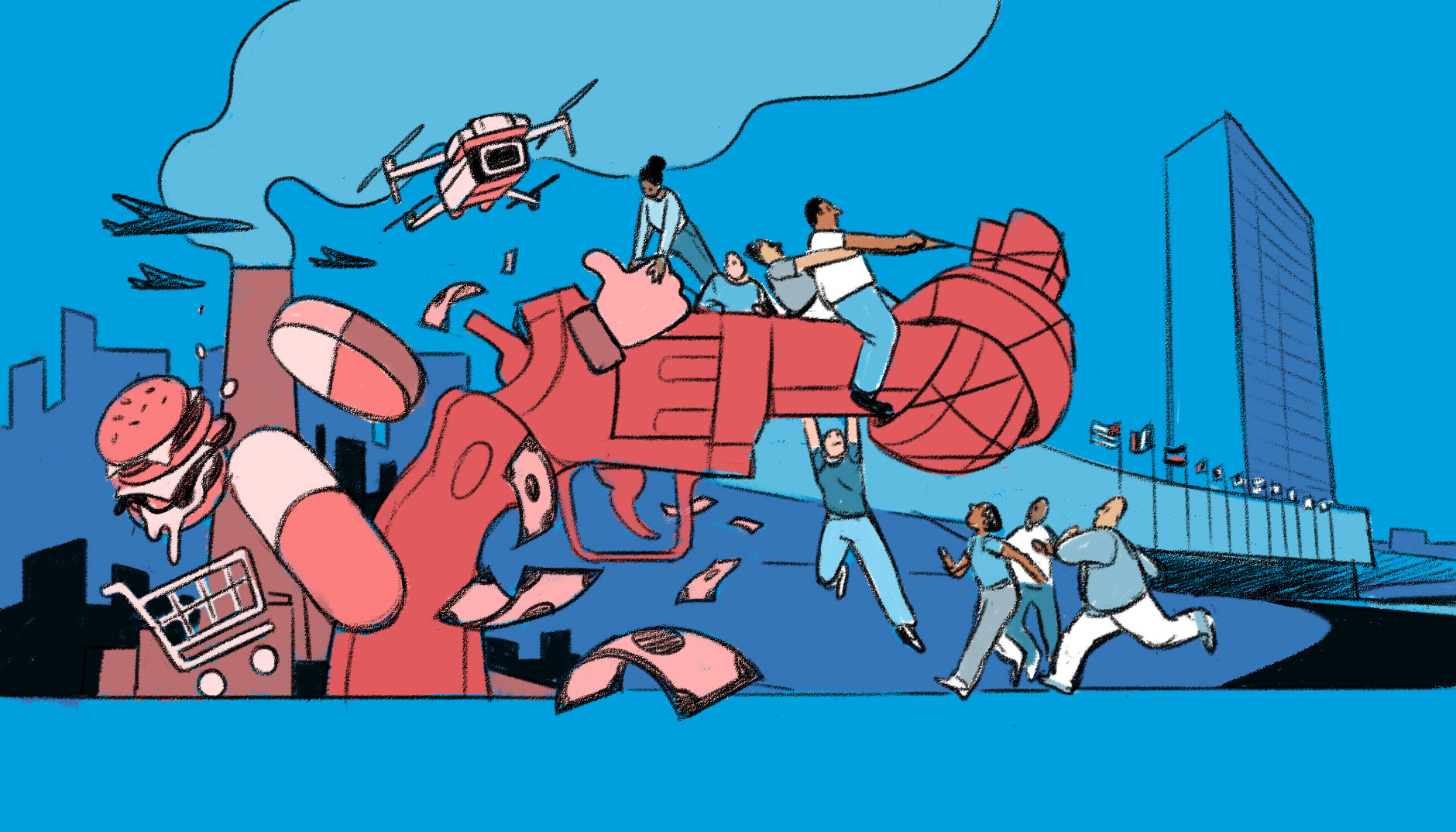Coinciding with the Summit of the Future on September 22-23, ESCR-Net members will be present in New York to attend the Social Movements and Organizations’ Encounter at The People’s Forum. From September 19 through September 21, members will engage with civil society organizations in calling for concrete pathways for a more democratic, people’s led and human rights-driven multilateral system.
The main outcome of the Summit will be an intergovernmental Pact for the Future, its objective to “deliver a UN for people and the planet in the 21st century and beyond.” The Pact is conceived as an action-oriented document aimed at putting forward “multilateral solutions for a better tomorrow.” It seeks to achieve this through accelerating the implementation of the Sustainable Development Goals, and commitments to science and technology, international peace and security, and the transformation of global governance.
Despite such bold ambitions, the road towards the Summit has been paved with questions and hesitation by civil society organizations, both regarding its capacity to achieve these goals and its ability to advance towards a multilateral system that is more democratic and driven by Human Rights principles.
ESCR-Net members Habitat International Coalition (HIC), People’s Health Movement (PHM), FIAN International, and Corporate Accountability, among others part of the Peoples Working Group on Multistakeholderism and the Corporate Accountability Working Group, have been active in preparation for the Summit. They contributed to calls for inputs to the Pact, participated in consultations, and joined in the Civil Society Conference held in May 2024 in Nairobi, which was set out to mobilize contributions of non-State actors to the Pact.
Concerns have arisen over the outcome of the Nairobi conference and current draft of the Pact. ESCR-Net with several other civil society groups have underscored the rise of corporate capture of the UN system, and the dilution of substantive participatory processes and civil society oversight of decision-making. The draft of the Pact encourages multistakeholder approaches and makes vague references of how it can take place. It also encourages private sector involvement, while making a mention of accountability to UN frameworks.
ESCR-Net underscores the view that multistakeholder governance, with corporations and their hybrid associations at the core, is not the solution to current global crises, nor for the “modernization” and reform of the UN. On the contrary, we see it as an extremely worrying sign of the increasing corporate capture of the UN multilateral system, and subversion of the very basis of multilateralism rooted in decision-making among states. The proliferation of multistakeholder mechanisms in global governance has made it neither more inclusive nor more efficient. Instead, it has been inclusive mainly of corporations and efficient only for realizing their interests.
Members’ participation in the Social Movements and Organizations’ Encounter in the lead-up to the Summit further underscores these views. The encounter is organized by Friends of the Earth International (FOEI), the Transnational Institute (TNI), Focus on the Global South, IT for Change, the Global Campaign for Education (GCE), FIAN International, ESCR-Net, Corporate Accountability, and PHM. Under the call to “stop neoliberal globalization, corporate capture and the far-right and to fight for a new multilateralism for the people and the planet,” the encounter will assemble movements and organizations equally concerned that, as it stands, the actions to be adopted during the Summit might risk deepening existing trends, instead of addressing them. This encounter will be the opportunity to critically reflect on the process leading up to the Pact of the Future, and to put forward demands and proposals for a more effective, democratic and just multilateral system.
ESCR-Net and aforementioned partners’ commitment to a more democratic and participatory multilateral system precedes the Summit of the Future and will continue once it concludes. We will continue to protest and resist any form of corporate capture of the UN. We call on civil society to join this effort wherever its participation is demanded to build a just and sustainable world.


